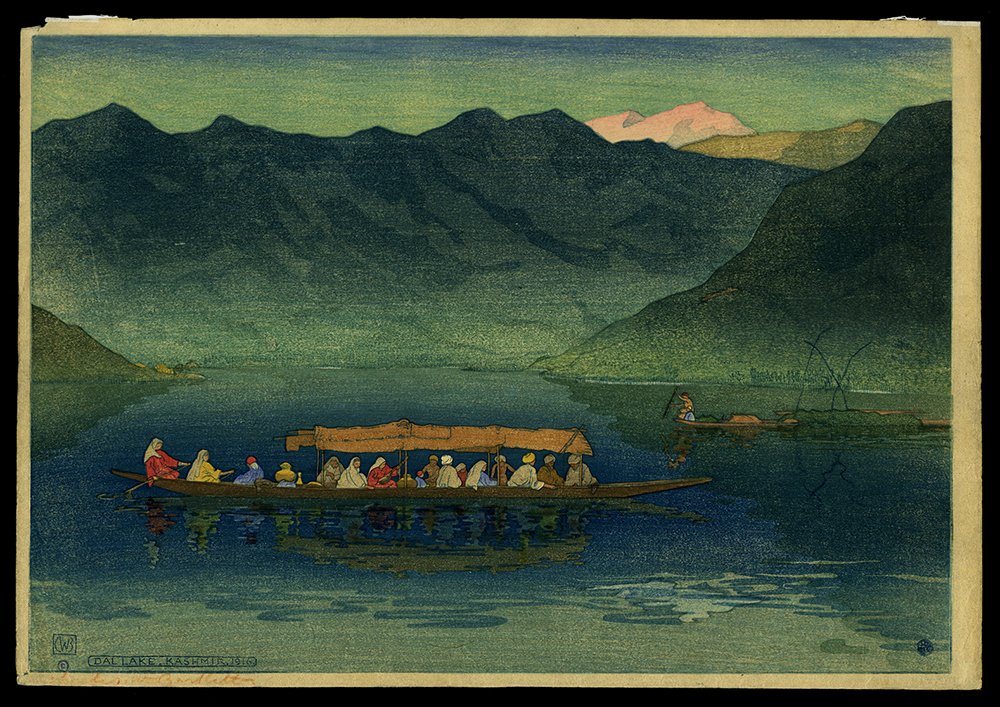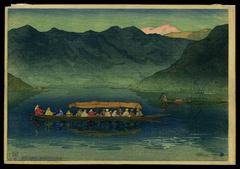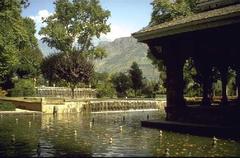
Visiting Dal Lake: Everything You Need to Know
Publication Date: 23/07/2024
Introduction to Dal Lake
Dal Lake, nestled in the Budgam district of Jammu and Kashmir, India, is not just a body of water but a tapestry of history, culture, and nature. Known as the “Jewel in the crown of Kashmir,” Dal Lake has been a source of inspiration for centuries, drawing in Mughal emperors, British colonials, and modern-day tourists alike. The lake’s serene beauty was immortalized by Mughal Emperor Jahangir, who famously proclaimed, “If there is a paradise on earth, it is this, it is this, it is this” (India Today). Beyond its aesthetic allure, Dal Lake serves as a vital part of the local lifestyle and economy, supported by floating gardens (known as “Rad”), houseboats, and a diverse ecosystem (Down To Earth, BBC). However, the lake faces significant environmental challenges, prompting ongoing preservation efforts (WWF India). This comprehensive guide aims to provide visitors with essential information, from historical insights and cultural significance to practical tips on visiting hours, ticket prices, and preservation efforts.
Contents
- Introduction
- Historical Background
- Cultural Significance
- Ecological Importance
- Tourism and Economy
- Visiting Hours and Ticket Information
- Preservation Efforts
- Architectural Marvels
- Nearby Attractions
- Festivals and Events
- Visitor Tips
- FAQ
Guide to Visiting Dal Lake - History, Tickets, and Tips
Historical Background
Dal Lake’s history dates back to ancient times, with references found in texts from the Mughal era. The Mughal emperors, particularly Jahangir, were captivated by the lake’s beauty and often visited it. Jahangir famously remarked, “If there is a paradise on earth, it is this, it is this, it is this,” while admiring the lake’s splendor (India Today).
During the Mughal period, Dal Lake became a favored retreat for the emperors, who constructed several gardens and pavilions along its shores. The Shalimar Bagh and Nishat Bagh are prime examples of Mughal garden architecture that still stand today, offering a glimpse into the opulent lifestyle of the era (The Hindu).
Cultural Significance
Dal Lake holds immense cultural significance for the local Kashmiri population. It is not just a tourist attraction but a vital part of the local lifestyle and economy. The lake supports a unique ecosystem, including floating gardens known as “Rad” in Kashmiri. These gardens are used for cultivating vegetables and flowers, contributing to the local agriculture and economy (Down To Earth).
The houseboats on Dal Lake are another cultural hallmark. These intricately designed boats serve as floating homes and hotels, offering a unique living experience. The tradition of houseboats dates back to the British colonial period when British residents, barred from owning land in Kashmir, built these floating homes (BBC).
Ecological Importance
Dal Lake is an ecological treasure trove, home to diverse flora and fauna. The lake’s ecosystem supports various species of fish, birds, and aquatic plants. However, it faces significant environmental challenges, including pollution and encroachment. Efforts are ongoing to preserve and restore the lake’s ecological balance (WWF India).
Tourism and Economy
Tourism is a major economic driver for the region, with Dal Lake being a central attraction. The lake offers various recreational activities, including Shikara rides, houseboat stays, and water sports. These activities generate substantial revenue and provide employment opportunities for the local population (Economic Times).
Visiting Hours and Ticket Information
- Visiting Hours: Dal Lake is accessible to visitors throughout the day. However, the best time to visit is during daylight hours to fully appreciate its beauty.
- Ticket Prices: Entry to Dal Lake is free, but activities like Shikara rides and houseboat stays are chargeable. Prices for Shikara rides usually range from INR 400 to INR 800 per hour, depending on the duration and type of boat.
Preservation Efforts
Recognizing the lake’s historical, cultural, and ecological significance, various preservation efforts have been initiated. The Jammu and Kashmir Lakes and Waterways Development Authority (LAWDA) is actively involved in cleaning and maintaining the lake. Projects include sewage treatment plants, dredging operations, and awareness campaigns to educate locals and tourists about the importance of preserving Dal Lake (LAWDA Official Website).
Architectural Marvels
The Mughal gardens along Dal Lake are architectural marvels that reflect the grandeur of Mughal design. Shalimar Bagh, built by Emperor Jahangir for his wife Nur Jahan, is a stunning example of Persian-style garden architecture. The garden features terraced lawns, cascading fountains, and intricate stonework, making it a must-visit for history and architecture enthusiasts (UNESCO).
Nishat Bagh, another Mughal garden, was built by Asif Khan, the brother of Nur Jahan. The garden’s layout is inspired by the Persian concept of paradise, with twelve terraces representing the twelve signs of the zodiac. The garden offers breathtaking views of Dal Lake and the surrounding mountains, making it a popular spot for tourists (The Better India).
Nearby Attractions
Visitors to Dal Lake can also explore nearby attractions such as the Hazratbal Shrine, known for its stunning architecture and spiritual significance, and the historic Pari Mahal, offering panoramic views of the lake and the city of Srinagar.
Festivals and Events
Dal Lake is also a hub for various cultural festivals and events. The annual Shikara Festival, organized by the Jammu and Kashmir Tourism Department, showcases the traditional Shikara boats adorned with flowers and lights. The festival includes boat races, cultural performances, and local cuisine, offering a vibrant experience for visitors (Times of India).
Visitor Tips
For tourists planning to visit Dal Lake, here are some essential tips:
- Best Time to Visit: The ideal time to visit Dal Lake is from May to November when the weather is pleasant, and the gardens are in full bloom.
- Accommodation: Staying in a houseboat is a unique experience. Ensure to book in advance, especially during peak tourist season.
- Local Cuisine: Don’t miss trying the local Kashmiri cuisine, including dishes like Rogan Josh, Yakhni, and the famous Wazwan feast.
- Guided Tours: Opt for guided tours to learn about the lake’s history, culture, and ecological significance.
- Environmental Responsibility: Be mindful of the environment. Avoid littering and participate in local conservation efforts.
FAQ
- What are the visiting hours for Dal Lake? Dal Lake is accessible throughout the day, but visiting during daylight hours is recommended.
- How much do tickets for Dal Lake cost? Entry is free, but activities like Shikara rides range from INR 400 to INR 800 per hour.
- What is the best time to visit Dal Lake? The best time to visit is from May to November.
- Are there guided tours available? Yes, guided tours are recommended to fully appreciate the lake’s significance.
Dal Lake, with its rich history, cultural significance, and natural beauty, offers a memorable experience for every visitor. Whether you’re exploring the Mughal gardens, enjoying a Shikara ride, or staying in a houseboat, the lake’s charm is sure to leave a lasting impression.
Summary and Final Thoughts
Dal Lake in Budgam, India, encapsulates the essence of Kashmir’s rich history, vibrant culture, and stunning natural beauty. From the Mughal gardens of Shalimar Bagh and Nishat Bagh to the serene houseboat stays and Shikara rides, every aspect of Dal Lake offers a unique experience. The lake not only serves as a major tourist attraction but also supports the local economy and lifestyle through its floating gardens and houseboats (The Hindu, BBC). However, it is crucial to acknowledge and support the ongoing preservation efforts to maintain its ecological balance (WWF India). By following the provided tips and guidelines, visitors can ensure a memorable and responsible visit to this iconic destination. Whether you’re exploring the historical Mughal gardens, participating in the vibrant Shikara Festival, or simply enjoying the tranquility of a Shikara ride, Dal Lake promises an unforgettable experience that will leave a lasting impression.
Sources and Further Reading
- Guide to Visiting Dal Lake - History, Tickets, and Tips, 2018, India Today (India Today)
- The Mughal Gardens of Kashmir, 2018, The Hindu (The Hindu)
- Floating Gardens of Dal Lake are Dying, 2018, Down To Earth (Down To Earth)
- The Vanishing Houseboats of Kashmir, 2020, BBC (BBC)
- Dal Lake Conservation, WWF India (WWF India)


